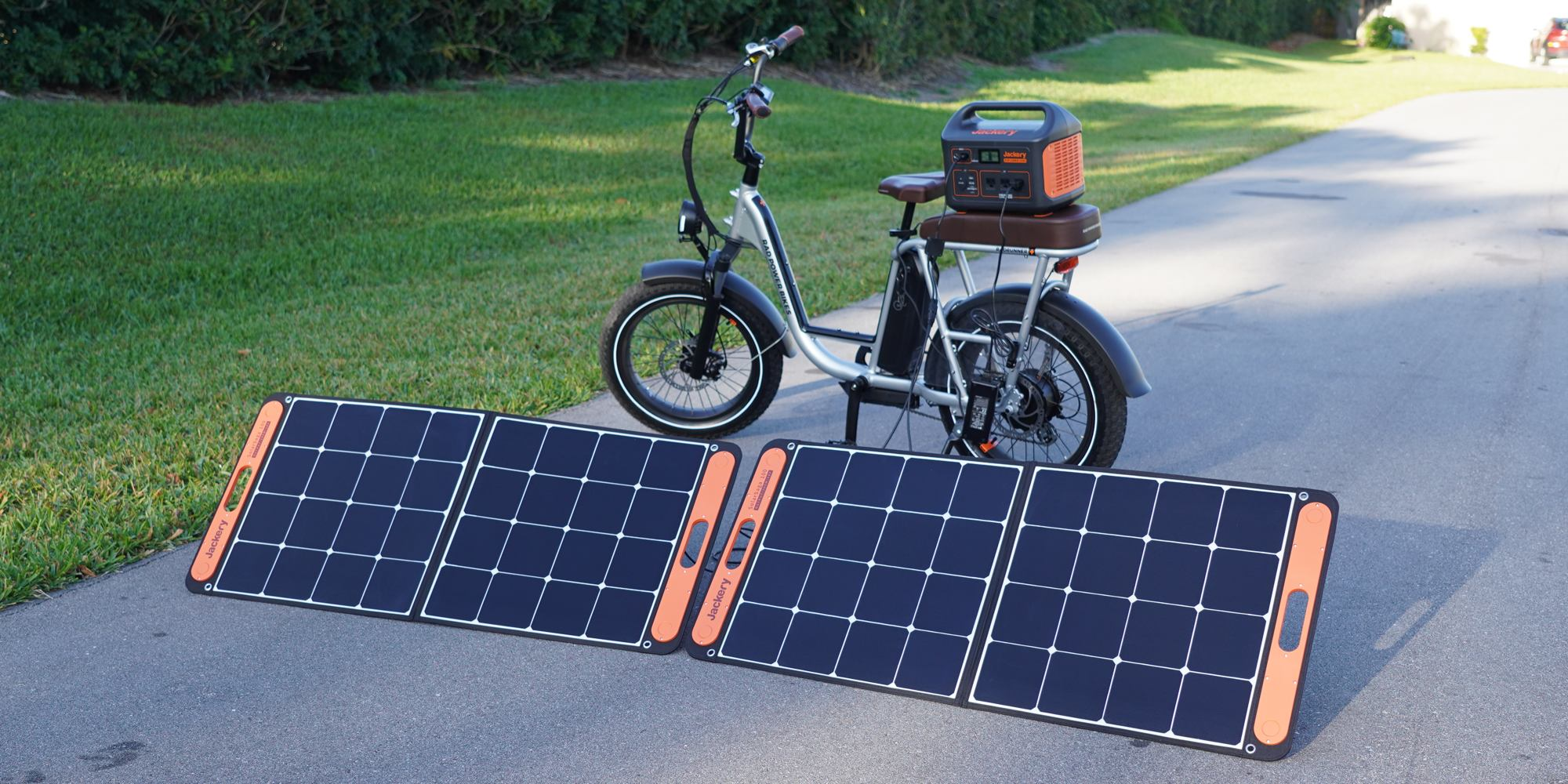Green Energy
Everything about energy production and storage.
Related communities:
That's very close but I wonder if we can go even farther. Basically I saw people doing this:

but obviously if you look at the numbers you have to stop for hours to charge your bike and even with flexible panels you need some sort of a cart to carry them. This is because we need some durability but what if I'm only interested in single trip? Couple weeks, maybe a month. Would it be possible to make an ultra light panel that can charge my bike in let's say an hour?
Whats your goal here? Are you planning to ride around the country on like an electric mountain bike or something? Im not sure you'll get a compact solar panel that can change a battery in an hour, my panles on my house can only put out 250watts, 50v at 5 amps in full sun, at a brief glance and some dodgy math it would still take 2-3 hours to change an e-bike battery
They have different size on the website, but it really depends on how large your bicycle battery is. The largest one is 60W and ways 1.7kg. A small bicycle like that might have 300Wh or so. Since you probably just lay them on the ground and they are not 100% efficent anyway with charging you need 10 solar panels or so to charge your bicycle up within an hour.
If you want it for a cycle trip, then you are probably better of having a fixed panel on a trailer. That way you can charge during the trip and non flexible panels are much more efficent. You end up with something like these.
I'm not looking for existing product. I don't think anything like this exists. I'm just wondering if it's possible to make with existing solar panel tech. Something like rescue foil solar panel. Or does it need some plastic casing?

With silicon based cells this seems unlikely, but with Perovskite based cells it exists already.
You're right, looking for Perovskite I see publications about foil based solar panels. Thanks, I will dig some more.
Cadmium telluride might also be of interest
I think they do make what you're asking for, but they're not great.
Printed solar panels exist, and are super light weight, but they're only 10% as efficient as regular panels so you need 10x surface area to produce the same amount of electricity
Thanks, I haven't checked printed panels. I will take a look.
Not an expert. This has been done quite successfully for space applications. Granted they are only required to roll out once but they have to do so with near perfect reliability. There are quite a few makes and models but I'll reference the ones currently mounted on the ISS (ROSA made by Redwire) because you've probably seen pictures of them.
Their patent states that they use polymeric sheets or fiberglass meshes as a backing material.
Here they are in their packed up state:

And unpacked (the brownish "smaller" panels on the right, note that they are still longer than entire human modules):

If strength and weight wasn't an issue then compact folding is entirely possible, considering how they've been using foldable solar panels on satellites since the early days of spaceflight
A rolled panel however would have to use very thin and small cells, which would be less efficient
I'm not an expert either, I don't think the plastic is crucial to power generation performance, how ever I don't know what else would give good flexibility without electrical conductivness, eg if you had a alloy foil backing and somehow the panel got damaged you could potentially have the whole thing become energized and whatever it's stuck to, in saying that perhaps a rubber mat backing or some kind insulated cloth would be the way to go,
I have a tiny one that rolls up, and that tech is from 15-20 years back. Got it from funding a Kickstarter. Don't know how those guys made out.


